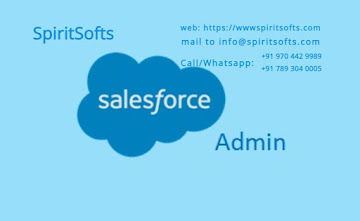 Elevate your expertise in SAP EWM with our comprehensive training solutions. We provide SAP EWM Training, Corporate Training, Work Support, and Job Support tailored to meet industry demands. Gain hands-on experience, real-time scenarios, and expert guidance to excel in your career. Enroll today and take the next step towards success in SAP EWM!
Elevate your expertise in SAP EWM with our comprehensive training solutions. We provide SAP EWM Training, Corporate Training, Work Support, and Job Support tailored to meet industry demands. Gain hands-on experience, real-time scenarios, and expert guidance to excel in your career. Enroll today and take the next step towards success in SAP EWM!Course Content for SAP EWM (Extended Warehouse Management) Training
Unit 1: The Extended Warehouse Management System
- Introduction to Extended Warehouse Management
- Basic ERP and EWM Integration
- Delivery Document Integration
Unit 2: EWM Structure
- Organizational Units
- EWM Structural Elements
Unit 3: Master Data
- EWM Master Data like Product Master. Packaging Specifications
- Warehouse Structure, Storage Types, Storage Sections, Storage Bins, Work centers, Activity Areas and etc.
Unit 4: Warehouse Monitor and RF Framework
- Warehouse Monitor, Easy Graphics Framework and Warehouse Cockpit
- Introduction to RF UI
- Configuration settings for RF
- RF usage in Inbound and Outbound Processes
- RF Framework
Unit 5 : Handling Units
- Configuration of Handling Units
- Bulk stratargy with Handling Units
- Pallet Strategy with Handling units
Unit 6 : Goods Receipt Process
- Goods Receipt Processing Using EWM
- ERP and EWM Documents in Goods Receipt
- Storage Controls
- Goods Receipt Process Overview
- Availability Groups for Inventory Management
- Direct Putaway Configuration
- Deconsolidation Process.
- Value added Services
Unit 7: Goods Issue Process
- Outbound Delivery Processing
- EWM Outbound Delivery Documents
- Storage Control in Outbound Processes
- Wave Processing
- Value-Added Services
- Goods Issue
- Stock Removal Strategies
- Pick Denial/Handling Differences in Picking
Unit 8: Storage Control
- Storage Control Concepts
- Process-oriented Storage Control
- Layout-oriented Storage Control
Unit 9: Warehouse Order & Warehouse Task Creation
- Product Warehouse Task
- HU Warehouse Task
- Creation of WT for Warehouse Requests
- Filters for Warehouse Order Creation Rules
- Limit Values for Warehouse Order Creation Rules
- Pick, Pack and Pass During Picking
Unit 10: Posting Changes, Stock Transfers & Replenishment
- Posting Changes and Stock Transfers
- Ad Hoc Movements and
- Replenishment
Unit 11: Physical Inventory
- Periodic Physical Inventory Procedure
- Continuous Physical Inventory Procedures
- Cycle Counting
- Processing of Physical Inventory Documents
- Difference Analysis
- Physical Inventory Progress
- Reports in Physical Inventory
- Physical Inventory Using Radio Frequency
Unit 12: RFUI
- RFUI Configurations and processes
Unit 13: Strategies
- Putaway and Stock Removal Strategies
Unit 14: Additional Topics
- Resource management
- Queue determination
- Auto pick hu
- Packaging specifications – pack spec
- Difference b/w Decentralized and Embedded EWM
- Availability groups
- Putaway quantity classification
Unit 15: PPF (postprocessing framework and form printing
- Overview of PPF
- Define action profiles and actions
- Condition configuration




